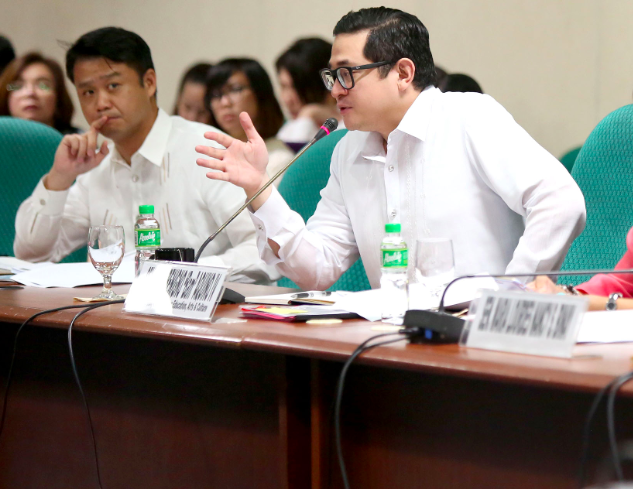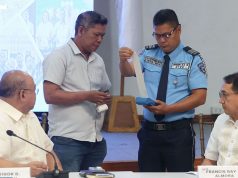
MANILA – The Senate on Monday unanimously approved on third and final reading a measure which promotes greater transparency and public accountability in the formulation and implementation of the Executive department’s economic policies.
Senate Bill No. 1483, otherwise known as the Fiscal and Monetary Report Act of 2017, requires the Secretaries of the Department of Finance (DOF), the National Economic and Development Authority (NEDA), and the Department of Budget Management (DBM), as well as the Governor of the Bangko Sentral ng Pilipinas (BSP), to appear before a joint congressional oversight committee twice a year to report on the current fiscal status of the government.
“This legislation will ensure transparency in the government’s monetary and fiscal policy direction by mandating public disclosure of information to lawmakers. Under this measure, Congress will be regularly updated on the real economic status of the government,” said Gatchalian, the chairman of the Senate Committee on Economic Affairs and principal sponsor of the measure.
Under SBN 1483, monetary and fiscal managers shall report before the newly-created Joint Congressional Oversight Committee on Fiscal and Monetary Policies, which will be chaired by the chairman of the Senate Committee on Economic Affairs, with the chairpersons of the Senate Committees on Finance, Ways and Means, and Banks, Financial Institutions and Currencies serving as members. The Senate minority bloc shall appoint an additional member to represent the group in the oversight committee.
The contingent of the House of Representatives, on the other hand, will be led by the chairperson of the Committee on Economic Affairs, with the chairpersons of the House Committees on Appropriation, Ways and Means, Economic Affairs, and Banks and Financial Intermediaries, as well as a representative chosen by the House minority bloc, serving as members.
The proposed legislation requires the DOF to lead discussions on the government’s fiscal policy and submit a written report on the Consolidated Public Sector Financial Position; National Government Debt Service Expenditures; Foreign and Domestic Borrowings; National Government Revenues; and National Government Financing Program and Outstanding Debt.
The NEDA, on the other, shall submit a written report on economic developments and prospects in the labor market, macro-economy, gross national income, gross domestic product and its components, unemployment, youth unemployment and underemployment.
Meanwhile, the DBM shall also submit a written report on the status of the National Budget, Status of Expenditure Program; Status of Disbursement; Statement of Appropriations, Allotments, and Obligations and Balances. On the other hand, the BSP report shall include data on monetary aggregates and their components; purchases and sales of foreign exchange and of international reserves; balance of payments; indices of consumer prices and of import and export prices; exports and imports volume and value; and financial status of the BSP and the banking industry.
Gatchalian said the biannual reporting will enhance public accountability and strengthen fiscal responsibility, consistent with the country’s commitment to good governance under the Philippine Development Plan 2017-2022.
The proposed measure provides lawmakers the forum to meticulously review government’s spending habits and planning strategies, compared to the present system where congressional oversight of fiscal management is limited to budget analysis during the annual budget season, Gatchalian explained.
“Congress needs to be informed about how government manages and disburses public funds. We need to be updated on the execution of the executive’s fiscal and monetary policies and the real fiscal condition of the economy, so we may timely come up with legislative solutions when they meet stumbling blocks,” Gatchalian added.
Senate Bill 1483 is the product of public hearings held by the Senate Committee on Economic Affairs on Senate Bill 837, a measure authored by Senate President Pro-Tempore Ralph Recto.









